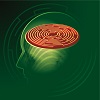
In questa pagina è presente l’elenco dei libri, dei manuali e degli articoli scientifici presenti nella bibliografia internazionale che hanno come oggetto la dipendenza affettiva (love addiction), le dipendenze, le molestie, le problematiche nelle relazioni sentimentali e i quadri di personalità maggiormente implicati nei processi disfunzionali generatori di sofferenza.
Libri e manuali
- Attili Grazia, “Il cervello in amore“. il Mulino
- Annalisa Balestrieri, “Dipendenze affettive, idoli e modelli di riferimento“. Independently 2022. Recensione
- Guerreschi C., “La dipendenza affettiva”. Franco Angeli.
- Hart Josephine, “Il danno”. Universale Economica Feltrinelli
- Moscovici Claudia, “Relazioni Pericolose: Affascinanti, carismatici e seduttivi.
- Pericolosi. Come riconoscerli e fuggire”. Sonda
- Norwood Robin, “Donne che amano troppo”. Universale Economica Feltrinelli
- Rosenberg, K. P., Curtis Feder L., “Dipendenze comportamentali“. Edra
Articoli
- Ahmadi, V., Davoudi, I., Ghazaei, M., & Mardani, M. (2013). Prevalence of obsessive love and its association with attachment styles. Procedia-Social and Behavioral Sciences, 84, 696-700.
- Bution, D. C., & Wechsler, A. M. (2016). Dependência emocional: uma revisão sistemática da literatura. Estudos Interdisciplinares em Psicologia, 7(1), 77-101.
- Di Chiara, G., & Imperato, A. (1988). Drugs abused by humans preferentially increase synaptic dopamine concentrations in the mesolimbic system of freely moving rats. Proceedings of the National Academy of Sciences, 85(14), 5274-5278.
- Dunn, E. W., Wilson, T. D., & Gilbert, D. T. (2003). Location, location, location: The misprediction of satisfaction in housing lotteries. Personality and Social Psychology Bulletin, 29(11), 1421-1432.
- Earp, B. D., Wudarczyk, O. A., Foddy, B., & Savulescu, J. (2017). Addicted to love: What is love addiction and when should it be treated?. Philosophy, psychiatry, & psychology: PPP, 24(1), 77.
- Fisher, H. E., Brown, L. L., Aron, A., Strong, G., & Mashek, D. (2010). Reward, addiction, and emotion regulation systems associated with rejection in love. Journal of neurophysiology, 104(1), 51-60.
- Fisher, H. E., Xu, X., Aron, A., & Brown, L. L. (2016). Intense, passionate, romantic love: a natural addiction? How the fields that investigate romance and substance abuse can inform each other. Frontiers in psychology, 7, 687.
- Gilbert, D. T., Pinel, E. C., Wilson, T. D., Blumberg, S. J., & Wheatley, T. P. (1998). Immune neglect: a source of durability bias in affective forecasting. Journal of personality and social psychology, 75(3), 617.
- Maran, D. A. (2012). Il fenomeno stalking (pp. 1-210). UTET.
- Meloy, J. R., & Fisher, H. (2005). Some thoughts on the neurobiology of stalking. Journal of Forensic Science, 50(6), JFS2004508-9.
- Petruccelli, F., Diotaiuti, P., Verrastro, V., Petruccelli, I., Federico, R., Martinotti, G., … & Janiri, L. (2014). Affective dependence and aggression: an exploratory study. BioMed research international, 2014.
- Rosenberg, K. P., & Feder, L. C. (2014). An introduction to behavioral addictions. In Behavioral Addictions (pp. 1-17).
- Sabatinelli, D., Bradley, M. M., Lang, P. J., Costa, V. D., & Versace, F. (2017). Pleasure rather than salience activates human nucleus accumbens and medial prefrontal cortex. Journal of neurophysiology.
- Sophia, E. C., Tavares, H., Berti, M. P., Pereira, A. P., Lorena, A., Mello, C., … & Zilberman, M. L. (2009). Pathological love: impulsivity, personality, and romantic relationship. CNS spectrums, 14(5), 268-274.
- Thege, B. K., Horwood, L., Slater, L., Tan, M. C., Hodgins, D. C., & Wild, T. C. (2017). Relationship between interpersonal trauma exposure and addictive behaviors: a systematic review. BMC psychiatry, 17(1), 164.
- Wilson, T. D., Wheatley, T., Meyers, J. M., Gilbert, D. T., & Axsom, D. (2000). Focalism: A source of durability bias in affective forecasting. Journal of personality and social psychology, 78(5), 821.
Contattami
Normativa Cookie, Disclaimer, Privacy e Copyright
Home

